Shalom Harlow By Ellen Von Unwerth, 1993

Shalom Harlow by Ellen von Unwerth, 1993
More Posts from Nefaralous and Others
I have an idea for a short story about a girl who is taken by the Fae, sort of like a changeling situation. She eventually gets back to her realm, but discovers that much more time has passed than she thought while she was with the Fae.
I have some areas of the story planned out, but I’m trying to figure out how to end it 🤔💭
🌸Describing Scents For Writers 🌸| List of Scents
Describing aromas can add a whole new layer to your storytelling, immersing your readers in the atmosphere of your scenes. Here's a categorized list of different words to help you describe scents in your writing.
🌿 Fresh & Clean Scents
Crisp
Clean
Pure
Refreshing
Invigorating
Bright
Zesty
Airy
Dewy
Herbal
Minty
Oceanic
Morning breeze
Green grass
Rain-kissed
🌼 Floral Scents
Fragrant
Sweet
Floral
Delicate
Perfumed
Lush
Blooming
Petaled
Jasmine
Rose-scented
Lavender
Hibiscus
Gardenia
Lilac
Wildflower
🍏 Fruity Scents
Juicy
Tangy
Sweet
Citrusy
Tropical
Ripe
Pungent
Tart
Berry-like
Melon-scented
Apple-blossom
Peachy
Grape-like
Banana-esque
Citrus burst
🍂 Earthy & Woody Scents
Musky
Earthy
Woody
Grounded
Rich
Smoky
Resinous
Pine-scented
Oak-like
Cedarwood
Amber
Mossy
Soil-rich
Sandalwood
Forest floor
☕ Spicy & Warm Scents
Spiced
Warm
Cozy
Inviting
Cinnamon-like
Clove-scented
Nutmeg
Ginger
Cardamom
Coffee-infused
Chocolatey
Vanilla-sweet
Toasted
Roasted
Hearth-like
🏭 Industrial & Chemical Scents
Metallic
Oily
Chemical
Synthetic
Acrid
Pungent
Foul
Musty
Smoky
Rubber-like
Diesel-scented
Gasoline
Paint-thinner
Industrial
Sharp
🍃 Natural & Herbal Scents
Herbal
Aromatic
Earthy
Leafy
Grass-like
Sage-scented
Basil-like
Thyme-infused
Rosemary
Chamomile
Green tea
Wild mint
Eucalyptus
Cinnamon-bark
Clary sage
🎉 Unique & Uncommon Scents
Antique
Nostalgic
Ethereal
Enigmatic
Exotic
Haunted
Mysterious
Eerie
Poignant
Dreamlike
Surreal
Enveloping
Mesmerizing
Captivating
Transcendent
I hope this list can help you with your writing. 🌷✨
Feel free to share your favorite scent descriptions in the replies below! What scents do you love to incorporate into your stories?
Happy Writing! - Rin T.
ultimate character development template
basics
name: meaning of name: nicknames/titles: age: gender: location: birthday: strengths + example where it's shown: weaknesses + example where it's shown: how it affects others:
emotional depth
attachment style + how it manifests in the story: physical fear: emotional/abstract fear: happy memory: sad memory: object of significance: philosophical outlook/belief: what characters are ignorant about themselves: how confident are they: goal: long-term dreams: what they're embarrassed/ashamed to tell others about: regrets: source of pride: source of misery: what they admire above all else: do they believe in fate:
personality
mbti: enneagram: big five: character archetype: star sign: who they pretend to be on the outside: who they actually are/how they feel towards the mask: mental health conditions: how it manifests for them: iq: eq: humour: reputation:
habits
bad habits: mannerisms when stressed: mannerisms when content: mannerisms when scared: mannerisms normally: verbal mannerisms/distinctive speaking style: how do they move across a room: what do they say and what remains unsaid: how they express love: hobbies:
appearance
defining features: eye shape + colour: hair texture + colour: skin texture + tone: vibe: height: build: clothing: any bodily disfigurement (scars, etc.): overall attractiveness: their opinion on their appearance: appeals to:
relationships
who they trust most: what they wish they could do for them: what's holding them back: who they hate most: what they wish they could do to them: what's holding them back: relationship with the protagonist: relationship with the antagonist: siblings: relationship with them: parents/step-parents: relationship with them: previous broken relationships: why did it break: what others expect of them: who believes in them: their mentor character/who they look up to: political/religious/other affiliations: what makes them different from every other character: non-human relationships + why: romantic "type" + why: relationship dynamics:
backstory/background
primary emotion towards their past: primary feelings while in their past: where did they grow up: defining incidents: earliest childhood memory: saddest memory: happiest memory: major accomplishments: their opinion on it: notable people in their backstory: effect on them today: trauma: what have they already lost: financial circumstance:
progression
why are they important (eg. why're they the only one able to do something?): what do they learn about themselves throughout the story: what do they learn about the world: how do they feel towards their newfound knowledge: character arc (positive, negative, neutral): how relationships change because of their actions: what mistakes do they make: what scene is their character highlighted: do they get what they want: why or why not: what happens to them after the story ends:
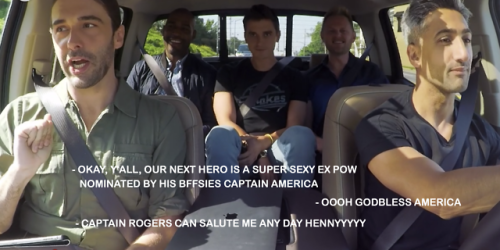

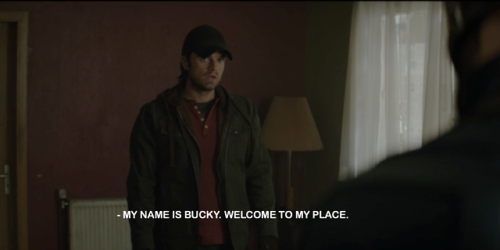



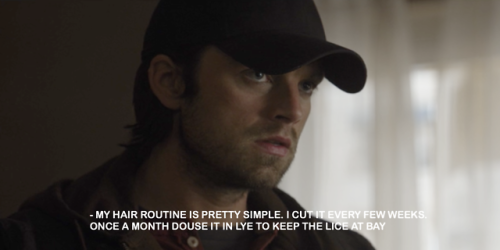
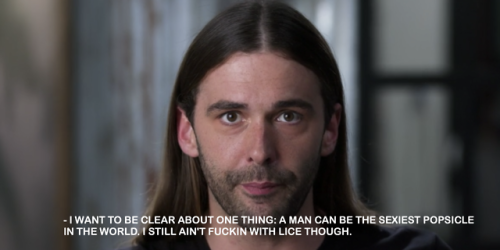
and the end result:

bonus:

Hello,
I’ve had this page for a while, but I might start using it more seriously to post some of my writing.
I always enjoyed writing and wrote a lot when I was younger and through most of school, but once I hit high school I just stopped, mainly because I didn’t have a lot of free time, but I was always self conscious of my writing, too. What if it’s no good? What if no one likes it? It brought me joy, though, and I believe that’s the most important thing.
I have a few ideas for short stories and even longer tales I’m hoping to work on and (maybe) share here.
So, if anyone actually reads this, or anything else I put out there, thank you & I hope you enjoy it.
✨🖤🖋️📚
How can I tell not tumblr people I want to be like Donna Tartt?
Like yeah I want to be a intelligent, classy and stylish unmarried woman who publishes a banger of a novel every ten years and disappear into the void between two books.
Hello! Can you help me and/or give me examples of how to write a pre-teen? Specifically a slightly mature for their age but still socially-awkward, selfless, empathetic, extroverted 10-year-old
How to Write a Pre-Teen
Voice and Language
Simple but specific vocabulary: Pre-teens might not use very complex words, but they often know and throw in some “big words” they’ve recently learned or mimic words they hear adults use. Don’t overdo it, though—they’ll often misapply or half-understand these terms, which can create natural, humorous moments.
“It’s totally, like, a catastrophe that I forgot my project.”
Expressive dialogue: Pre-teens are enthusiastic and often exaggerate. They can also shift quickly between emotions, from excitement to frustration.
“That was the best movie ever!” might turn into “Actually, I mean, it was kinda boring in some parts, but, you know, overall…”
Thoughtful yet blunt: Kids this age often haven’t fully learned the “filters” adults use. They can be direct and say things that are surprisingly insightful or unexpectedly honest.
Thoughts and Perspective
Developing identity and opinions: They’re beginning to form their own beliefs but still echo the views of family, teachers, or friends.
“Mom says people should never lie, but I wonder if little lies are okay if they help people feel better…”
Questioning and introspective moments: Pre-teens are curious about life, relationships, and “big ideas.” They may ask questions, but sometimes keep their deep thoughts to themselves, exploring them internally.
“If friends are supposed to be there for each other, why do I feel alone even when they’re around?”
Struggle with abstract concepts: At this age, they’re just beginning to understand abstract ideas like justice or friendship but often approach them in straightforward, literal ways.
Behavior and Actions
Impulsivity and energy: They might shift quickly between activities and emotions, getting distracted or excited without much control over it. They may also blurt out ideas or act before thinking, especially if they’re extroverted.
For instance, a character might immediately jump up to help someone even if they aren’t sure what to do, or they might “borrow” something without fully considering the consequences.
Physical awkwardness: Pre-teens can be a bit clumsy as they’re still growing into their bodies. This can lead to endearing, awkward moments.
They might knock something over, trip over their own feet, or feel self-conscious in ways that show they’re still figuring themselves out physically as well as socially.
Friendships and Social Dynamics
Navigating social rules: Pre-teens are very aware of social “rules” but may not fully understand them. This is an age when they care a lot about what their friends think, but they’re also just beginning to question these dynamics.
A pre-teen might want to befriend the “cool” kids but feel conflicted when they realize their values don’t align. Or they may try too hard to impress friends and feel self-conscious afterward.
Conflicted loyalties: Friendships are often intense at this age, and they might struggle with conflicting feelings if friends argue or if they feel left out.
“I really like hanging out with Sarah, but I know Emma doesn’t. Maybe if I can make them both laugh, we could all just… get along?”
Small gestures: Pre-teens often show they care in understated ways, like sharing snacks, giving a small gift, or cheering someone up when they’re down. For a socially-awkward pre-teen, these gestures may come out clumsy but sweet.
Insecurity and Self-Awareness
Self-consciousness mixed with bravery: Pre-teens often fluctuate between trying to fit in and wanting to stand out. They might do something brave but then doubt themselves or quickly retreat if things don’t go as planned.
For instance, a character might volunteer to speak in front of the class only to feel panicked once they’re in the spotlight.
Hyper-awareness of themselves and others: They’re beginning to notice how others perceive them and may get flustered easily or worry about little things, like if their clothes look okay or if they sounded silly.
“I shouldn’t have laughed like that… I bet everyone thought I sounded so weird.”
Joking as a defense: Pre-teens often use humor to cope, covering up their awkwardness or discomfort by making jokes.
Reactions to Conflict and Emotion
Quick emotional shifts: They might go from laughing to frustrated to embarrassed in just a few minutes. They feel emotions intensely and may have outbursts or react strongly to things adults might dismiss as minor.
Heroic ideals vs. real-world disappointments: Many pre-teens have an idealized view of right and wrong, fairness, and heroism, and they may be disappointed when things don’t align with these ideals. They’re just starting to understand that people aren’t all good or all bad.
“I don’t get it… why would she lie about something like that? Friends are supposed to be honest!”
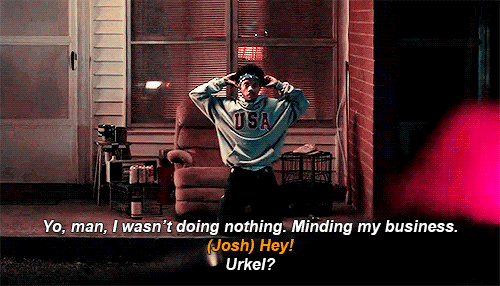



9 Reminders for Writers
Your writing doesn't need to be perfect to be worthy of being written. The message is all wonky or there are plotholes every which way to wednesday? So what, just have fun!
The ultimate goal in writing is to have fun or to challenge yourself. If you're not successfully reaching your goals as a writer (including having fun), then you don't have to force yourself to keep working on that WIP.
This is your official permission to put the WIP down. You don't have to force yourself to write it. Promised your friends and/or followers you'd write it? They'll understand if they really care about you as a person. Had a specific goal for where you wanted to go with it? It's okay to drop that goal. Not every goal is for reaching, and there's no shame in quitting sometimes, especially when writing is ultimately for enjoyment.
It is okay not to want to publish. Hell, it's okay not to want to share your writing. You don't have to have a specific sharing goal for your writing for it to matter.
If you're getting haters, just remind yourself your writing isn't meant for them.
Stop changing your WIP to fit someone else's narrative for it. If someone wants you to change your WIP in some way, that's what fanfiction is for. Encourage them to write it and leave you to writing the canon version how you see it.
Your writing doesn't have to be a certain way to matter. It doesn't have to be light, it doesn't have to be dark. It doesn't have to be long or short. It doesn't have to have romance or a lack thereof. Your writing can fit whatever narrative you want it to and no one should be able to convince you otherwise.
As Denise says all the time, writing advice is there to assist you, not to boss you around. Yes, there are spelling and grammar rules that enhance the technical aspects of a story, but you don't even need to follow them if they don't fit your story. Sometimes having poor grammar and/or spelling actually suits your writing. Sometimes a piece of advice will work well for one WIP and not another. Cater your advice-following to the specific WIP that you're working on, and don't pressure yourself to have the "Perfect Story," because there is no such thing. It's something creative created by an imperfect person. Ergo, it won't be perfect
Have! Freaking! Fun! Quit pressuring yourself so much and just have FUN with it. If it's overwhelming, if it's exhausting to think about writing, if you're losing enjoyment from writing, it's okay to take a break. Please do when you need to. There's no shame in taking breaks. We all need them, so let your body rest! <3
Of course there are tons more things I can say but these are things I feel we writers constantly need reminding of, so here's another reminder <3
Happy writing, friends.
🤍 H
-
 shisasan liked this · 1 month ago
shisasan liked this · 1 month ago -
 lamujermaldita reblogged this · 1 month ago
lamujermaldita reblogged this · 1 month ago -
 crazyestser liked this · 2 months ago
crazyestser liked this · 2 months ago -
 scorpithoughts liked this · 3 months ago
scorpithoughts liked this · 3 months ago -
 deepfriedanon reblogged this · 3 months ago
deepfriedanon reblogged this · 3 months ago -
 cleavingtolilac liked this · 4 months ago
cleavingtolilac liked this · 4 months ago -
 phan987 liked this · 4 months ago
phan987 liked this · 4 months ago -
 yourlovecomfortsme liked this · 5 months ago
yourlovecomfortsme liked this · 5 months ago -
 polyesterswordfish liked this · 5 months ago
polyesterswordfish liked this · 5 months ago -
 zorja reblogged this · 6 months ago
zorja reblogged this · 6 months ago -
 doriscoolhunter liked this · 7 months ago
doriscoolhunter liked this · 7 months ago -
 barelyatouch liked this · 7 months ago
barelyatouch liked this · 7 months ago -
 dilfmachine9000 liked this · 7 months ago
dilfmachine9000 liked this · 7 months ago -
 curlyhaircrowley liked this · 7 months ago
curlyhaircrowley liked this · 7 months ago -
 millybaby liked this · 7 months ago
millybaby liked this · 7 months ago -
 that-crazy-drummer-chick reblogged this · 7 months ago
that-crazy-drummer-chick reblogged this · 7 months ago -
 kels976 liked this · 7 months ago
kels976 liked this · 7 months ago -
 boy-of-death liked this · 7 months ago
boy-of-death liked this · 7 months ago -
 isadeeznutz liked this · 7 months ago
isadeeznutz liked this · 7 months ago -
 seventeenpins liked this · 7 months ago
seventeenpins liked this · 7 months ago -
 honeyimanillusion liked this · 7 months ago
honeyimanillusion liked this · 7 months ago -
 vampiresandvenerations liked this · 7 months ago
vampiresandvenerations liked this · 7 months ago -
 luciiie liked this · 7 months ago
luciiie liked this · 7 months ago -
 unpoqu1todetodo liked this · 7 months ago
unpoqu1todetodo liked this · 7 months ago -
 selenophile-orion liked this · 7 months ago
selenophile-orion liked this · 7 months ago -
 milfsdoll liked this · 7 months ago
milfsdoll liked this · 7 months ago -
 voguementhols reblogged this · 7 months ago
voguementhols reblogged this · 7 months ago -
 voguementhols liked this · 7 months ago
voguementhols liked this · 7 months ago -
 screamiac liked this · 7 months ago
screamiac liked this · 7 months ago -
 stonegoldsxcrxt liked this · 7 months ago
stonegoldsxcrxt liked this · 7 months ago -
 professionalpromqueen liked this · 7 months ago
professionalpromqueen liked this · 7 months ago -
 ozarkthedog reblogged this · 7 months ago
ozarkthedog reblogged this · 7 months ago -
 undutchable11 reblogged this · 7 months ago
undutchable11 reblogged this · 7 months ago -
 osugahunnyicedtea liked this · 8 months ago
osugahunnyicedtea liked this · 8 months ago -
 rubarb reblogged this · 8 months ago
rubarb reblogged this · 8 months ago -
 iwonderandthinkof reblogged this · 8 months ago
iwonderandthinkof reblogged this · 8 months ago -
 katsoutthebag reblogged this · 8 months ago
katsoutthebag reblogged this · 8 months ago -
 katsoutthebag liked this · 8 months ago
katsoutthebag liked this · 8 months ago -
 nathaliekati liked this · 8 months ago
nathaliekati liked this · 8 months ago -
 travarica reblogged this · 8 months ago
travarica reblogged this · 8 months ago -
 enderwiggin reblogged this · 8 months ago
enderwiggin reblogged this · 8 months ago -
 colorfulmilkshakestrawberry liked this · 9 months ago
colorfulmilkshakestrawberry liked this · 9 months ago -
 seshirudesu reblogged this · 9 months ago
seshirudesu reblogged this · 9 months ago

